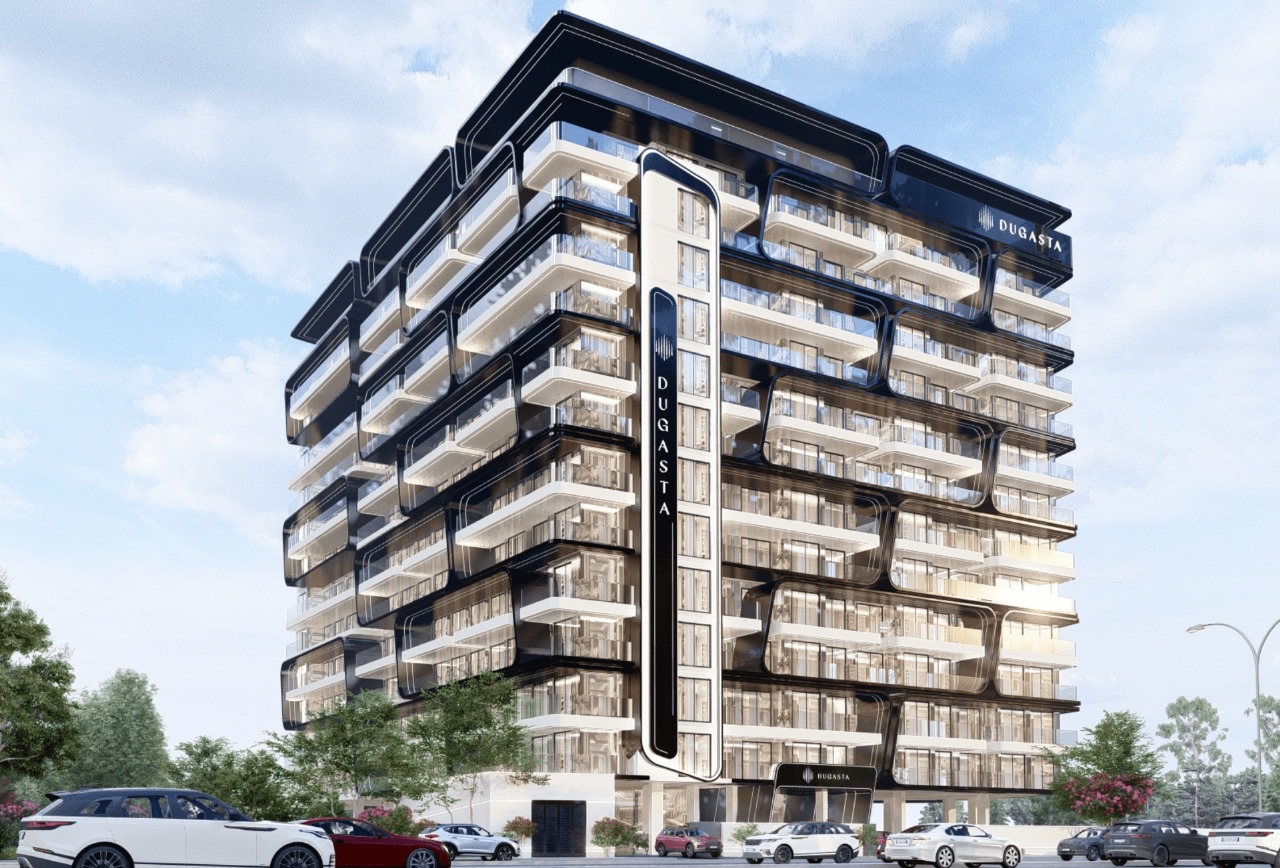Tokenized Real Estate: How Chinese Investors Are Betting on Dubai
The future of real estate isn’t around the corner; it’s already unfolding. In May 2025 alone, Dubai recorded over $18.2 billion in property sales.
But what truly turned heads was this: $399 million of those deals were tokenized, powered by blockchain and smart contracts. That number isn’t just a stat. It’s a signal.
Chinese investors are among the early movers. Constrained by capital controls at home and lured by Dubai’s innovation-friendly environment, they’ve found a
new path to diversify and grow wealth.
For them, tokenized real estate isn’t just an asset class; it’s a geopolitical haven, offering access to premium properties in areas like the Palm Jumeirah and
Downtown Dubai, without requiring millions upfront.
And this isn’t just a China-Dubai story. Investors from the UK, US, Saudi Arabia, Nigeria, and Singapore are entering the space too as Dubai fast becomes the
global capital of digital real estate innovation.
What is Tokenized Real Estate?
Tokenized real estate means turning a real building, like a villa in Dubai Marina, into digital shares on the blockchain. Each share is called a token.
These tokens are stored on networks such as Ethereum, and they follow special rules written in smart contracts.
What do these smart contracts do?
They handle things like:
- Splitting rental income among investors
- Making sure everyone follows the rules
- Automating transactions with no middleman
This isn’t just technical jargon; it’s a real shift in how people invest in property.
Why Is This Exciting for Investors?
You don’t need to be a millionaire to get started. With tokenized property, you can invest with as little as $500 or even less on some platforms.
That means more people can invest in real estate in Dubai, no matter where they live or how big their savings are.
How Tokenized Real Estate Compares to Traditional Property Investment
1. Lower Cost to Enter
In the old model, buying property could cost hundreds of thousands or even millions. With blockchain real estate platforms, you can start small.
Even Reental offered investors the chance to own a piece of a €7 million Burj Khalifa apartment with shares starting at just €100.
2. More Liquidity
Selling a house usually takes months. There’s paperwork, lawyers, agents and long waiting times. But with tokenized real estate, you can buy and sell tokens in minutes, just like stocks.
This kind of fast trading is a game-changer for people who want flexibility.
3. Global Access
Want to invest in Dubai real estate from London, New York, or China? No problem.
Platforms that offer real estate tokenization allow global users to invest across borders without complicated legal processes.
4. Greater Transparency
With traditional property sales, most details are hidden in agent reports and hard-to-access records.
But tokenized properties are stored on tamper-proof blockchain networks. That means every transaction is open, clear, and secure. No hidden fees. No missing paperwork.
Why Dubai Is The Perfect Tokenization Lab?
Dubai isn’t just a city. It’s becoming the center of global real estate innovation, and tokenization is a big part of that.
1. Strong Regulation
Dubai isn’t just experimenting; it’s actively testing tokenization with genuine government backing. The Dubai Land Department (DLD) is collaborating closely with the Virtual Assets Regulatory Authority (VARA). Together, they launched the REES Project, the region’s first official tokenization testbed.
- Smart contract oversight
- Compliance regulations
- Investor protection
2. Future-Driven Vision
Dubai's D33 Agenda is a long-term plan to use technology for economic growth. And tokenization fits right in. By combining digital tools with real estate,
Dubai is moving toward a smarter, faster economy. You can learn more about this in Dubai’s D33 Economic Agenda.
3. Real Estate Momentum
In 2024, luxury areas like Palm Jumeirah saw prices rise by 12-15%. That’s major growth, and yet, properties in Dubai still cost less than in cities like London or New York.
This makes Dubai an ideal market for new investors looking for high returns and lower entry points.
4. Tech Infrastructure
Dubai isn’t new to tech. The Dubai Future Foundation is already running several blockchain initiatives, including those linked to real estate.
This means tokenization isn’t a one-time trend, it’s part of a larger plan.
- Blockchain adoption
- Digital contracts
- Secure investment tools
That’s why Dubai’s real estate sector is now one of the most digitally advanced in the UAE.
Why Chinese Investors Lead the Charge
Chinese investors aren’t just buying properties in Dubai, they’re changing the way real estate investment works.
1. Strong Market Presence
Chinese nationals are already major players in the Dubai property market. They currently hold over 14% of the foreign investor share,
making them the third-largest foreign group in the UAE’s real estate space. This isn’t new but their influence is growing fast.
You can explore these trends further in JLL’s Global Real Estate Report.
2. Capital Flight & Wealth Diversification
Dubai has come up as a stable and high-growth market with a rising economy and investor-friendly laws, coupled with a complete absence of property tax.
It stands poised as a safe bet in terms of wealth preservation.
By shifting their focus, Chinese investors are diversifying their assets and reducing risk, a smart strategy in uncertain times.
You can read more in this Bloomberg article on China’s property crisis.
3. Residency Perks through Property
Dubai makes it easier for investors to secure long-term residency. For Chinese nationals who invest over AED 2 million,
the reward is a Golden Visa offering 5 to 10 years of residency without the need for a sponsor.
This is especially appealing to the 400,000+ Chinese expats already living in the UAE. For them,
Dubai becomes not just an investment destination, but a home base for business, family, and travel.
4. Luxury Focus
With real estate tokenization platforms, these investors don’t need to buy the entire unit.
They can own a fraction of a luxury apartment often with less than AED 5,000.
This opens the door for mid-level investors and younger generations to enter the luxury property market.
A great example is Prypco Mint, which allows fractional ownership in top-tier Dubai properties.
5. Crypto Comfort & Digital Confidence
China has one of the highest digital wallet adoption rates in the world. Younger Chinese investors, especially young millennials and Gen Z are beginning to utilize crypto,
NFTs, and blockchain tools. Therefore, the concept of real estate tokenization feels quite familiar.
Buying shares in a Dubai apartment with a few taps on the phone?
That’s not scary. That’s normal.
This ease of tech adoption is helping China lead the shift into blockchain-based property investment.
Why Tokenized Real Estate Is Attracting Global Investors
The trend doesn’t stop with China. Tokenized real estate in Dubai is catching the attention of investors around the world. Because it makes real estate:
- Affordable
- Flexible
- Transparent
- And, most importantly, profitable
Fractional Ownership leads to Lower Barriers
Before tokenization, you needed millions to invest in prime Dubai real estate. You could own a fraction of a Palm Jumeirah villa for as little as AED 2,000.
1. High Liquidity, Easy Exit
Traditional real estate is slow to buy and even slower to sell. It could take months to cash out.
With tokenized properties, your tokens can be sold or traded instantly on secondary markets. That means faster access to your money whenever you need it.
2. Tax-Free Gains
One of the biggest reasons global investors choose Dubai?
No capital gains tax. No rental income tax.
That means your net returns are higher, especially compared to countries like the US or UK, where taxes eat into your earnings.
Dubai’s tax-free structure is a magnet for investors seeking maximum yield.
3. Automated, Passive Rental Income
With tokenization, you don’t need to chase tenants or manage repairs. Smart contracts take care of everything from rent collection to profit sharing.
Legal & Regulatory Framework
The progressive approach that Dubai adopts for regulations sets it apart.
Oversight by VARA: All tokenized property investments must comply with the standards established by the Virtual Assets Regulatory Authority,
including KYC and AML requirements.
Investors holding property tokens worth over AED 750,000 may be eligible for residency in the UAE, opening up a whole new lifestyle and business possibilities.
Capital gains tax on real estate does not help in attracting investors, as it is done in the U.S. and several other countries in Europe.
Investors may consult their home tax experts to become aware of any cross-border obligations.
That said, investors should consult tax experts in their home countries to understand cross-border obligations.
Risks & Challenges
However, tokenized real estate remains a very promising industry with a handful of challenges to overcome:
- Market Volatility: Token values may be subject to all kinds of speculation along with the crypto price fluctuations, especially in relatively unstable platforms.
- Secondary Market Depth: Although improving, liquidity in tokenized property markets is still maturing compared to traditional exchanges.
- Smart Contract Risks: Coding flaws can introduce vulnerabilities, though Dubai’s government-backed pilots undergo thorough audits to reduce this risk.
- Global Regulation: Not all countries are as open as Dubai. In markets like Nigeria or Singapore, tokenization frameworks are still catching up.
Tokenization Goes Mainstream
By 2030, experts predict that nearly 30% of Dubai’s real estate could be tokenized. This isn’t just a trend or tech buzz. It’s a powerful shift backed by real innovation and long-term planning.
1. AI Meets Blockchain
The future of real estate investing in Dubai will combine the power of AI and blockchain. New platforms are being built to use artificial intelligence for smarter decisions.
These tools help:
- Set better property values for tokenized real estate assets
- Predict future investment returns
- Offer custom strategies based on your goals
This makes property investing simpler and more data-driven, especially for global investors.
You can learn more about how this works in this beginner's guide to AI and blockchain.
2. Real Estate in the Metaverse
Dubai is not stopping at physical assets. Companies like DAMAC are already building digital twins of their tokenized buildings.
This means you can:
- Take virtual tours of properties
- Explore homes in 3D
- Even buy or invest all from your computer
With the metaverse and Web3 growing fast, this kind of access is becoming the new normal.
3. Global Impact and Leadership
Dubai isn’t just changing its market; it’s setting a global example. Its clear rules, strong regulations, and early tech adoption are catching the eyes of other cities
like London and Miami.
But what sets Dubai apart is real-world action, not just promises. From laws to platforms, everything is already in motion.
That’s why it’s ahead and why more investors and governments are looking to Dubai’s real estate model for inspiration.
Tokenized real estate is not a futuristic concept; it’s the reality transforming how we view property investment today.
For Chinese investors, it provides a secure, innovative path to wealth preservation. For global investors from the US, UK, KSA, Nigeria, and Singapore, tokenized real estate
provides a tax-efficient, tech-enabled, and globally accessible model that merges crypto, fractional ownership, and security token offerings into a seamless experience.
As tokenization reshapes the real estate market, Dubai stands at the forefront, ushering in a new era for property investment worldwide.
If you want to get ahead of the next wave in property investment, now is the time to - Book a Consultation Call!

.png)


